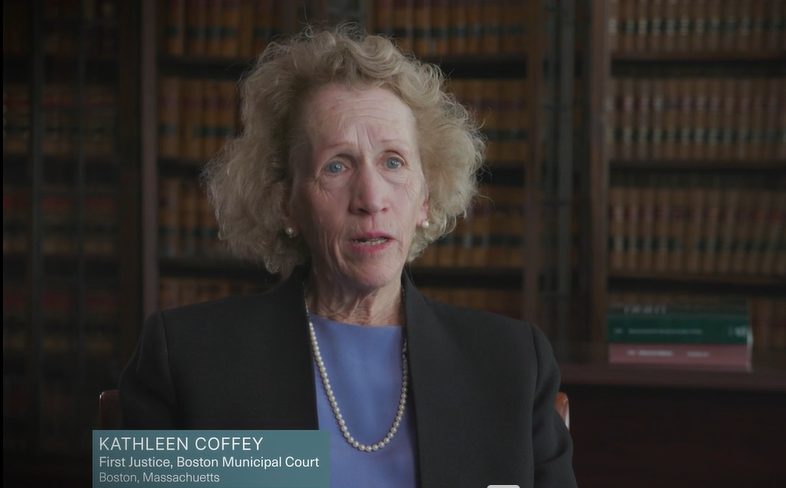New video explains impact of stigma on addiction
The stigma from substance use and opioid use disorders (SUD/OUD), and other conditions, such as mental health and homelessness, can lead to adverse outcomes and make a person unwilling to seek help. Feelings of self-judgment, inferiority, embarrassment, and even suicide often create barriers to seeking help and treatment among people with substance use and opioid use disorders.
homelessness, can lead to adverse outcomes and make a person unwilling to seek help. Feelings of self-judgment, inferiority, embarrassment, and even suicide often create barriers to seeking help and treatment among people with substance use and opioid use disorders.
In its new video, Stigma, the New England Regional Judicial Opioid Initiative (NE RJOI) tells the story of stigma through the eyes of judges, court personnel, law enforcement, and individuals with lived experiences. Created in partnership with the Opioid Response Network and the American Academy of Addiction and Psychiatry, the video's central message is that substance abuse is a treatable illness, not a moral failing.
Chief Judge Eric Menhert of the Penobscot Nation Tribal Court says stigma is about perceptions, particularly about how individuals will behave. Stigma education is vital to changing negative perceptions, he says.
With Bureau of Justice Assistance funding, NCSC has provided support to 14 states in the New England, Appalachian, and Midwest regions to battle the opioid crisis by sharing court-system perspectives on solutions to the epidemic. Findings from the National Judicial Opioid Task Force created the framework for these multidisciplinary initiatives.
"Stigma is a label; it's a negative feeling that we have towards a group that we fear that we do not want to be associated with," explains Boston Municipal Court Judge Kathleen Coffey.
She advises judges and stakeholders to "become aware, really aware, of (y)our choice of words, not just in conversation with the individual, but in conversations with ourselves," to avoid perpetuating unfair attitudes.
For more resources on SUD/OUD, visit the NCSC Behavioral Health website.
